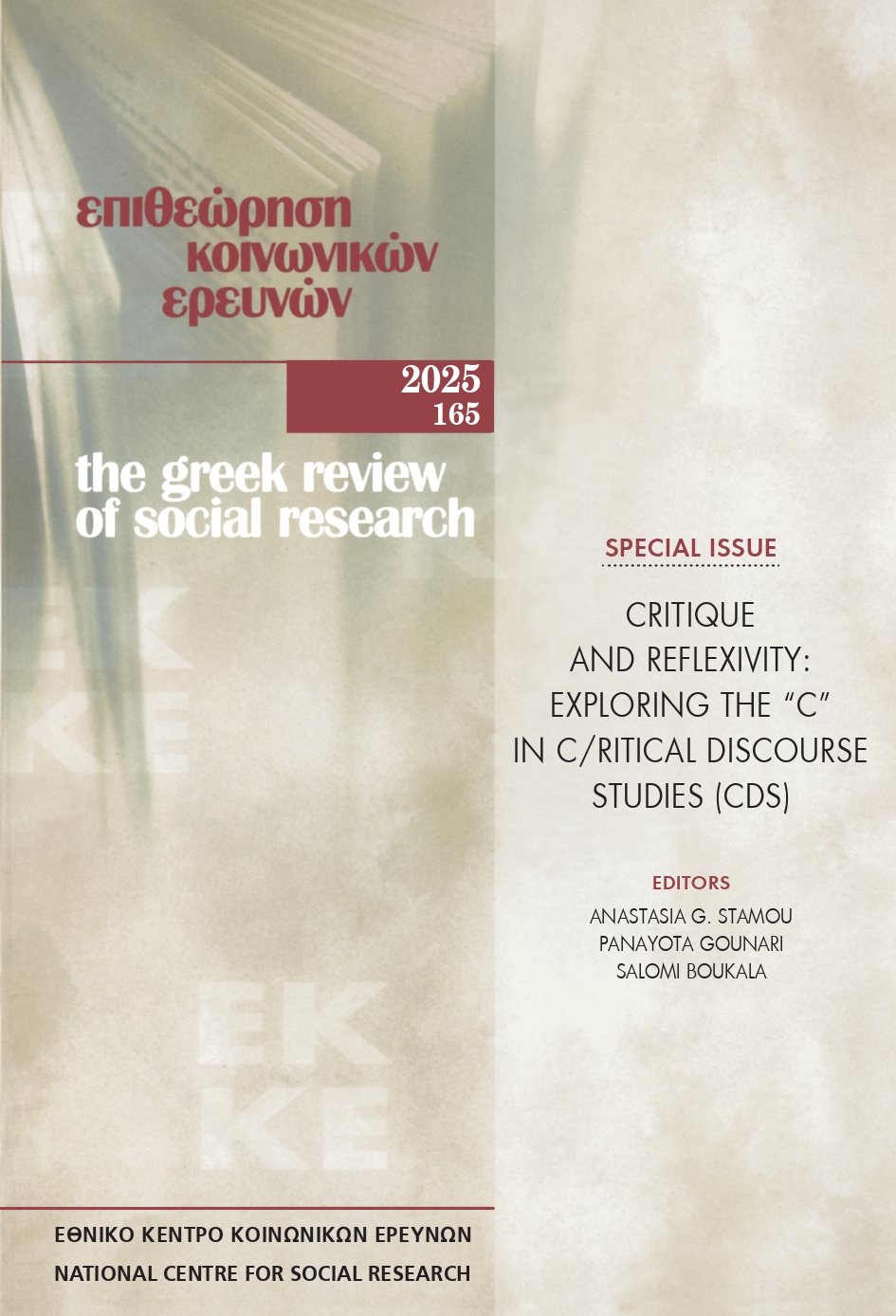Between Methodological “Ebb” and Emancipatory “Tide”: Reflecting on the “Critical” Core of Critical Discourse Studies in our own Work

Abstract
This article offers a reassessment of the use of the “Critical” in Critical Discourse Studies (CDS). In doing so, it aims to “breathe new life” into the discussion so that the concept can be reconsidered and better understood. We return to the immanent - socio-diagnostic, retrospective- and prospective critiques, introduced by the Discourse-Historical Approach (DHA) as a valuable heuristic for considering the “Critical” in CDS. After pinpointing some limitations in contemporary CDS-oriented research, we present examples from our own research practices to show both how “critique” can be foregrounded and how different ‘‘forms’’ of critique can, and should, be combined.
Article Details
- How to Cite
-
Serafis, D., & Bennett, S. (2025). Between Methodological “Ebb” and Emancipatory “Tide”: Reflecting on the “Critical” Core of Critical Discourse Studies in our own Work. The Greek Review of Social Research, 165, 159–185. https://doi.org/10.12681/grsr.42213
- Section
- Articles

This work is licensed under a Creative Commons Attribution-NonCommercial 4.0 International License.
Authors who publish with this journal agree to the following terms:
- Authors retain copyright and grant the journal right of first publication with the work simultaneously licensed under a Creative Commons Attribution Non-Commercial License that allows others to share the work with an acknowledgement of the work's authorship and initial publication in this journal.
- Authors are able to enter into separate, additional contractual arrangements for the non-exclusive distribution of the journal's published version of the work (e.g. post it to an institutional repository or publish it in a book), with an acknowledgement of its initial publication in this journal.
- Authors are permitted and encouraged to post their work online (preferably in institutional repositories or on their website) prior to and during the submission process, as it can lead to productive exchanges, as well as earlier and greater citation of published work (See The Effect of Open Access).


